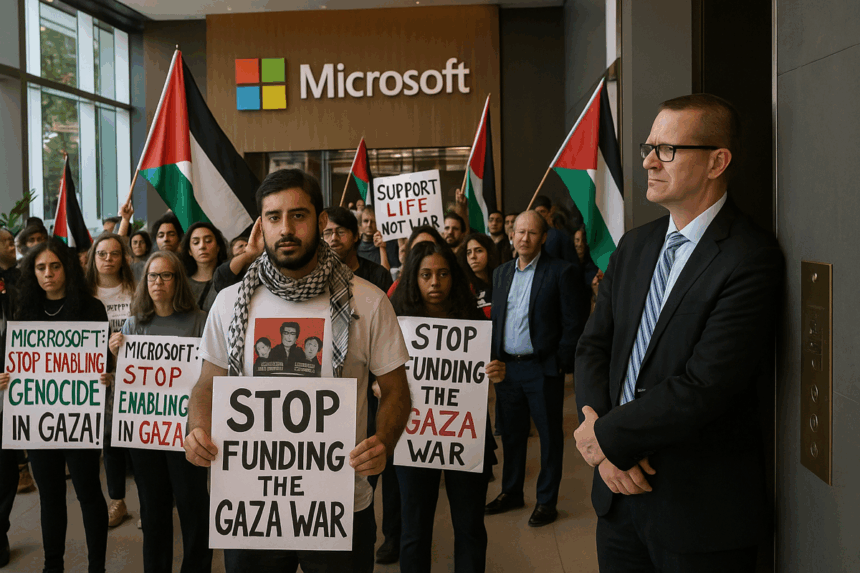Microsoft is under new pressure as protests over its cloud services and ties to Israel escalate. On Tuesday, police arrested seven people after demonstrators occupied the office of Microsoft President Brad Smith in Redmond. The protest, organised by the activist group No Azure for Apartheid, included both current and former employees of the company, who were concerned about Azure’s involvement in the Gaza War protests.
What’s Happening & Why This Matters
The protesters accuse Microsoft of enabling human rights abuses by providing Azure cloud services to the Israel Defence Forces (IDF). According to reports from The Guardian, Israel used Microsoft’s platform to store phone call data gathered from Palestinians in Gaza and the West Bank. Microsoft has denied allowing this, insisting that its terms of service prohibit mass surveillance, and announced it has hired an independent law firm to investigate the claims.
The demonstration is the latest in a string of actions targeting the tech giant. Last week, 18 people were arrested after protesting at Microsoft’s headquarters amidst the larger context of the Gaza War protests. Activists have also interrupted a speech by CEO Satya Nadella and disrupted the company’s 50th anniversary celebration. Their demands include that Microsoft sever all ties with Israel and provide reparations to Palestinians affected by alleged surveillance.
Brad Smith acknowledged the arrests during a media briefing, confirming that two of those detained were employees of the company. He framed the company’s position around upholding ethics:
“There are many things we can’t do to change the world, but we will do what we can and what we should. That starts with ensuring that our human rights principles and contractual terms of service are upheld everywhere, by all of our customers around the world,” Smith said.
The arrests were streamed live on Twitch, drawing online attention as protesters gathered both inside and outside the president’s office. These events are part of broader Azure in war protests.
The protests shine a spotlight on how global conflicts reach deep into Big Tech, raising tough questions about accountability, transparency, and the role of private companies in conflicts where technology can be weaponised.
TF Summary: What’s Next
The investigation commissioned by Microsoft will be closely watched, not just by protesters but also by governments, regulators, and the company’s global customer base. For Microsoft, the stakes are twofold: protecting its reputation while ensuring Azure is not linked to surveillance abuses. Such investigations are critical given the implications of Azure in the Gaza War.
If the law firm’s findings confirm misuse, the company faces shareholder unrest, employee resignations, and renewed calls for corporate accountability. Regardless of the outcome, Microsoft’s situation shows how tech platforms are increasingly drawn into geopolitics. The protests at Brad Smith’s office make clear that activist pressure is not slowing down.
— Text-to-Speech (TTS) provided by gspeech


